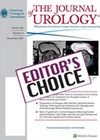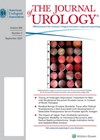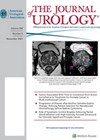
Journal Reviews archive for January 2022
Factors and time to conversion from prostate cancer active surveillance to treatment
Active surveillance is the standard of care for men with low-risk and selected men with favourable intermediate risk prostate cancer. The aim is to reduce the morbidity and mortality of overtreatment of non-clinically significant prostate cancer. A significant proportion progress...
Time for tea
Kidney stone disease can be related to genetic, biochemical, and dietary factors. Much has been said about the link between tea and coffee consumption and risks of urinary stone formation. This is a systematic review using the PRISM statement with...
Fear and frustration among women with recurrent UTIs
The risk of a women developing a urinary tract infection in her lifetime is over 50%, approximately 25% of which become recurrent (rUTIs). This study examined the viewpoints of women with rUTIs through six focus groups at a tertiary centre...
Standard versus expanded cultures to diagnose UTIs in women
Clinicians are well aware of the limitations of the so-called Kass criteria applied to standard urine culture (SUC) techniques as well as the limitations of empiric antibiotic prescribing for symptoms that are known to overlap with chronic conditions such as...







